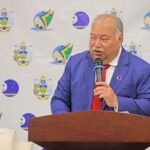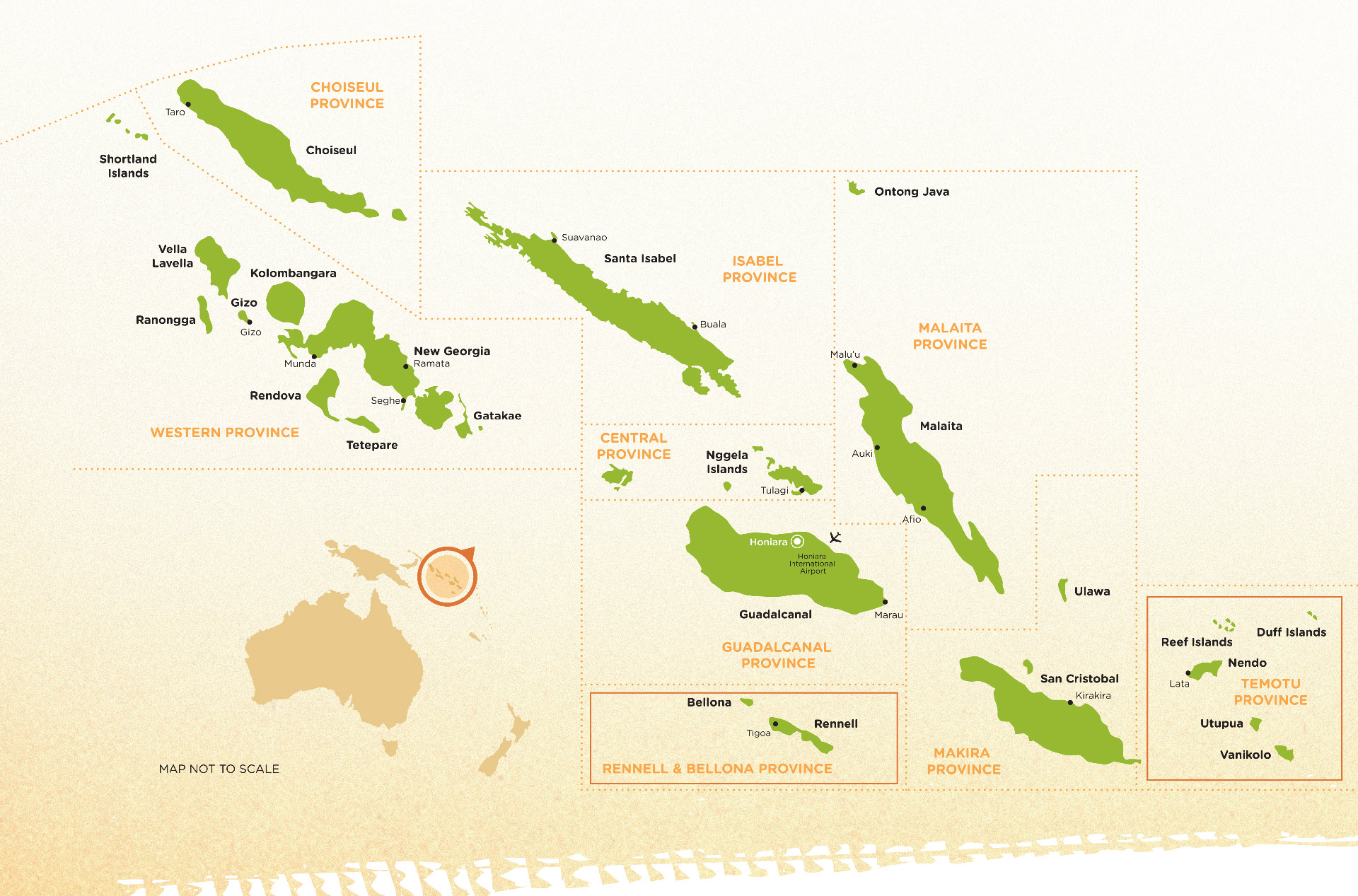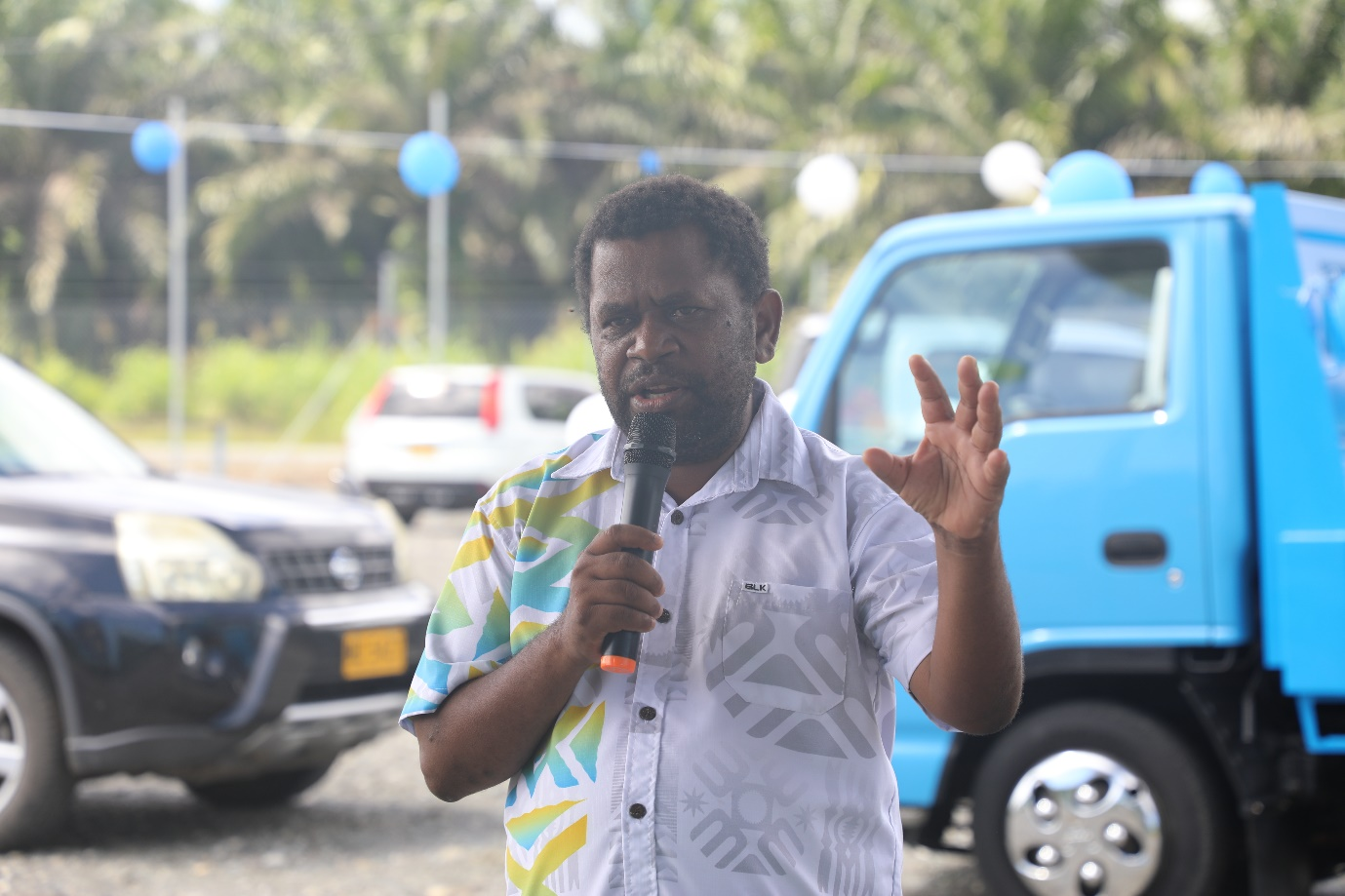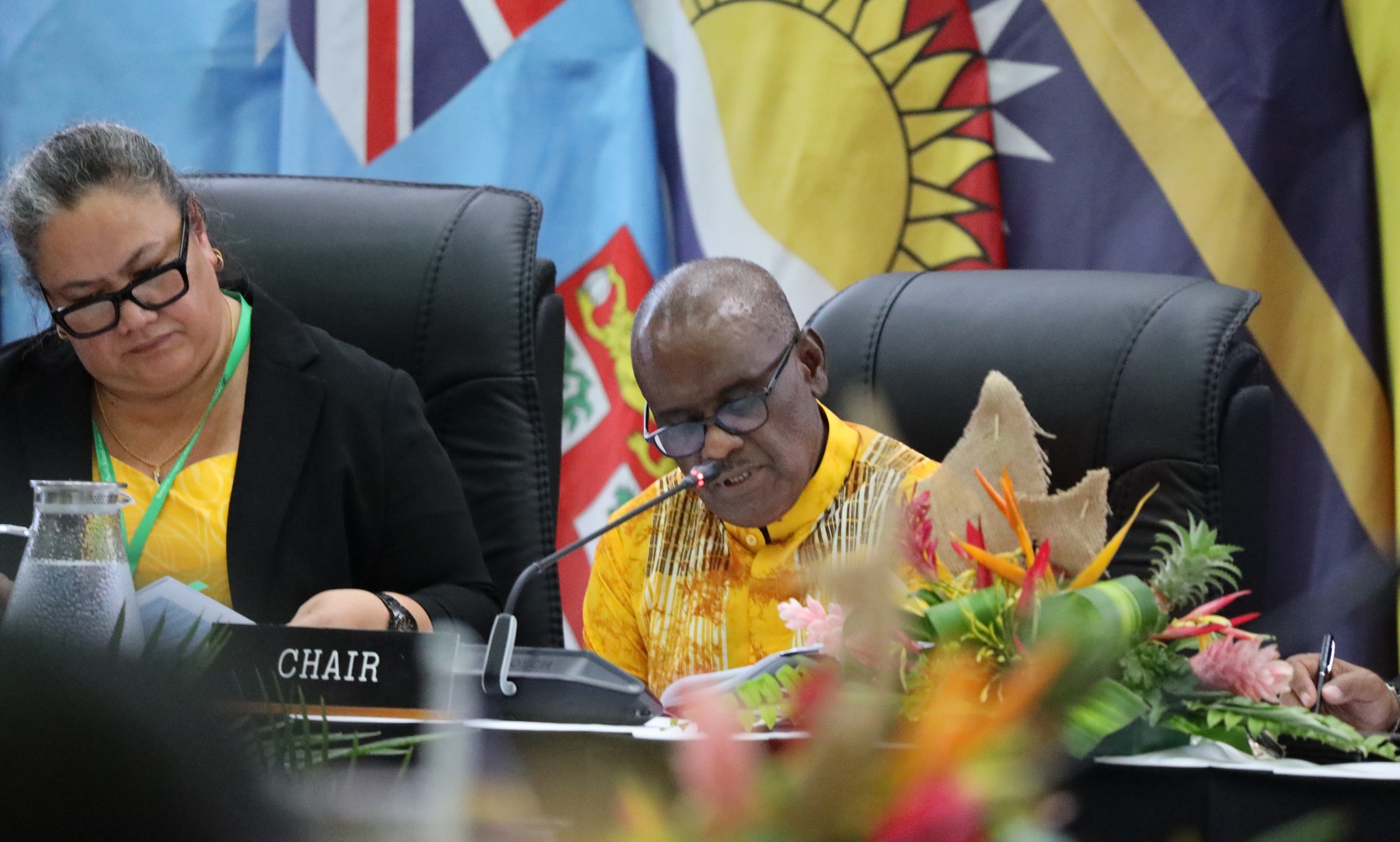Solomon Islands map image supplied
RECENT U.S. intelligence and media reports are “unfair” and use a “bombardment of rumors” against the Solomon Islands, says a former Solomon Islands government (SIG) official who spoke with the People’s World on condition of anonymity.
The U.S. government and Australia are targeting the Solomon Islands as part of a campaign for a new Cold War on China.
The Solomon Islands is an archipelago of 992 islands in the Pacific Ocean near Papua New Guinea and Indonesia. It is home to about 750,000 people and is located 6,000 miles away from the U.S. mainland. The Solomon Islands were seized by the British in the 1890s as part of European imperialism’s division of its global colonies. The country won independence in 1978.
That same year, the U.S. established a consulate in the capital city of Honiara. A decade later, according to the State Department’s website, that consulate was upgraded to an embassy.
The “upgrade” included intelligence attachés (spies) that operated from the Islands as part of the strategic encirclement of the U.S. government’s named enemies in the first Cold War. In a recent article on “Diplomatic Spying,” a Georgetown University professor of “secrecy studies” documented the long history of the close interactions among the U.S. diplomatic corps, the CIA, and military intelligence.
The U.S. reversed course in 1993, however, when the embassy was closed as part of the post-Cold War “peace dividend.” That closure showed the cynical U.S. view of its relationship with the Islands. Once the Cold War ended, the U.S. was no longer interested. Trade between the two countries steadily declined. A recent World Bank analysis revealed that the top export destinations for Solomon Islands trade were China, India, Italy, Switzerland, and Thailand, with the U.S. trailing much further behind.
A period of civil unrest followed, primarily caused by the 1990s Asian economic crisis. It was exacerbated when some political leaders tried to curry favor with the Australian government, encouraging a massive Australian military occupation. That occupation ended only in 2017 under the auspices of Prime Minister Manasseh Sogavare.
Since 2019, China has deepened its relations with the Solomon Islands beginning with humanitarian efforts, educational exchanges, and an increase in trade. In March 2022, China and the SIG signed a “security cooperation framework,” increasing technical support.
U.S. government officials immediately denounced the security agreement as China’s attempt to open a military base, an ironic accusation given that the U.S. operates about 750 military bases with 173,000 military personnel in at least 80 countries.
Both China and the SIG agree that no Chinese military base is planned.
The security agreement prompted the U.S. to re-open its embassy in January 2023. But the cynicism of U.S. imperialism again surfaced, as the move exposed its deep anxiety about China’s role in the Pacific. The re-opening was tied to its desperation to establish new intelligence-gathering bases rather than a serious interest in the people of the Solomon Islands.
Subsequent events and U.S. reactions seem to show the level of desperation.
In July of this year, President Xi Jinping met with Prime Minister Sogavare. The two leaders negotiated a “comprehensive strategic partnership featuring mutual respect and common development.” That arrangement asserted a shared recognition of national sovereignty, earnest goals for peaceful regional development, and material support for the Islands in the wake of human-caused climate change. A significant part of the agreement included enhanced trade, development aid, clean energy technology, and equipment for meteorological services and disaster prevention associated with climate change.
The U.S. response has been to pose subtle but concrete threats to the SIG and the country’s sovereignty. A handful of reports from the U.S.-government financed U.S. Institute for Peace (USIP) and its mirror Australian organization, the Australian Strategic Policy Institute (ASPI), have targeted the Solomon Islands with dubious “human rights” accusations that often precede deeper interventions by Western powers.
Opposition party leaders and organizations, backed by Australian and U.S. financial support, promoted civil unrest in 2021 and 2022 against Sogavare’s government. Western media quickly termed the protests as “riots” and blamed them on China and the Solomon Islands government’s openness to positive relations.
Positive reports are “rare”
“It’s rare for [Western media] to post any positive reports regarding our government, and most of them are just criticizing the downsides of everything we do to try to make the country peaceful and prosperous,” the former SIG official adds.
The USIP is a Cold War-era organization. While it presents itself as an “independent” and human-rights “research” organization, it is fully funded by Congress and its board includes U.S. government officials. It openly touts its ties to U.S. security and intelligence agencies. The USIP is designed to deploy “soft power” techniques as interference in other countries, to pressure them to align with U.S. goals. The ASPI plays a similar role for the Australian government, both of which are dependent on and serve U.S. interests with gusto. Most accurately, each organization should be understood as a component of U.S. imperialism’s infrastructure.
Since the recent diplomatic progress between China and the Solomon Islands, the USIP and ASPI have intensified propaganda efforts to damage the Solomon Islands government.
The USIP published reports in October and November 2023 that claimed to show declining democracy in the Solomon Islands. Those reports appear to have deliberately ignored real progress made in recent years. Instead, they present a distorted image by relying on selected statements by opposition party leaders known to opportunistically follow U.S. or Australian orders, such as Matthew Wale, Peter Kenilorea, Daniel Suidani, and Celsius Talifilu.
Those reports accused the Solomon Islands of electing governments without a majority of votes and being susceptible to corruption. Ironically, since 2000, two of four U.S. presidents won office with a minority of popular votes. U.S. election watchers also say that widespread gerrymandered electoral districts diminish democratic representation of the people in Congress and state legislatures. In the Senate, analysis of the current 50-50 split between the dominant parties shows that 50 Democratic senators represent 186 million Americans, while 50 Republican senators represent 145 million, signaling a lopsided dilution of the majority will. Further, electoral participation in the world’s “biggest democracy” is notoriously low, as the overwhelming majority of people view the system as corrupt or unable to implement the people’s real interests.
Endemic corruption in U.S. politics is indicated by nearly seamless connections between billionaires, corporate lobbies, and the major political parties. That members of Congress can profit from personal investments based on classified information they receive as government officials is an enduring systemic blight.
The USIP presented exaggerated descriptions of “violence” surrounding that country’s elections. But they could have more honestly written about the January 6, 2020 coup attempt in Washington D.C., or the many documented violent incidents during the 2020 COVID public health measures. The USIP researchers might have proven more sincere had they reported on the numerous documented incidents of police violence targeting protesters during the massive 2020 “George Floyd” protests. They might have lamented numerous incidents of anti-democratic repression of U.S. and European opponents of Israeli military war crimes in Gaza.
Indeed, overstated criticisms of women’s rights in the Solomon Islands might apply better to the U.S. government’s efforts to deny women the right to choose when to be pregnant, or to its ongoing refusal to address the gender pay gap. In the U.S., gender-based physical assaults, murders, and sexual assaults on women and girls directly impact several million women and girls each year.
The USIP’s gross dishonesty reveals more about U.S. imperialism than it does about the realities of the Solomon Islands. U.S. imperialism is incapable of and unwilling to solve—it even manipulates—internal U.S. problems while accusing others.
U.S. interventions—military, economic, political—tend to follow a pattern that many critics have called “hybrid war.” It begins with reports like these that are then amplified via U.S. government-controlled media such as Voice of America. Those “rumors” and innuendo subsequently appear in Western corporate media, which uncritically report government-authored statements. Recycled as “fact,” these claims manipulate the public into consenting to undemocratic intervention as a human rights project. Opposition groups and “leaders” are identified to lead the “color revolution.” Sanctions target the named individuals, groups, and even whole countries deemed to be enemies of U.S. interests. Resources are funneled to cooperative internal groups to create civic disruptions in the targeted country. The U.S. demands “regime change.” The Iraq war, numerous successful and failed coups in Latin America and the Caribbean, and the 2014 Ukraine uprising precisely followed this pattern.
U.S. intelligence and media targeting of the Solomon Islands is part of its broader strategy to undermine the country’s improving relationship with China. The historical context reveals a pattern of cynical interference rather than a genuine interest in the well-being of the Solomon Islands. Sensationalized accusations of human rights problems and democratic decline by U.S.-financed institutions serve as a familiar prelude to a potential hybrid war.
BY Grace Ramo (Freelancer)













